EU ministers say submarine row ‘wake-up call’ for Europe, not only a French matter
The European Union (EU)’s top officials have branded as a “wake-up call” the recent decision by the United States and Britain to exclude France from a $40-billion agreement to supply conventional submarines to Australia.
French and German ministers said on Tuesday that the Western decision to strip France of the submarine supply contract was a stark reminder the EU must bolster its capacity to act independently.
"It is once again a wake-up call for all of us in the European Union to ask ourselves how we can strengthen our sovereignty, how we can present a united front even on issues relevant to foreign and security policy," said Michael Roth, Germany's minister for European affairs.
France's minister for European affairs Clement Beaune welcomed the expression of solidarity from Germany and said the breakdown of trust with Washington strengthened the case for Europe to set its own strategic course.
Calling the row "a European issue" not simply a French one, Beaune stressed that Paris expected more support from EU partners.
"I don't think France is overreacting and I don't think France should overreact. But when a situation is worrying, is serious, I think it's also our responsibility to state it very clearly," he said.
Earlier on Tuesday, EU foreign policy chief Josep Borrell expressed the bloc’s support and solidarity with France as a row deepens over Australia's scrapping of the $40bn submarine order with Paris in favor of a US and British deal.
"This announcement (of the deal) ran counter to calls for greater cooperation with the European Union in the Indo-Pacific," Borrell said, adding that "more cooperation, more coordination, less fragmentation was needed to achieve a stable and peaceful Indo-Pacific region where China is the major rising power.”
Moreover, the EU’s top leaders accused US President Joe Biden of disloyalty to the transatlantic alliance and demanded Washington's explanation for misleading France and other European partners in forging a new strategic tie-up with the UK and Australia in the Indo-Pacific.
The European Commission said it was considering whether the diplomatic storm would affect a gathering of a new EU-US Trade and Technology Council in Pittsburgh on September 29 to discuss ways to cooperate on trade.
"We are analyzing the impact that the AUKUS announcement would have on this date," European Commission spokesman Eric Mamer said.
The US, Britain, and Australia established last Wednesday a security alliance – dubbed AUKUS – for the Indo-Pacific to protect what they called their shared interests and help Australia acquire American nuclear-powered submarines.
The new security pact effectively scuttled a previous $40 billion deal between France and Australia that was signed to supply French-designed conventional diesel-electric submarines to the Australians.
Under AUKUS, the three countries have agreed to enhance the development of joint capabilities and technology sharing and foster deeper integration of security and defense-related science, technology, industrial bases, and supply chains.
The partnership agreement has been viewed as an effort to counter China.
The move, which Paris called a “stab in the back," sparked outrage in France and prompted Elysee Palace to recall its ambassadors from Washington and Canberra on Friday.

French leader decries ‘unprecedented diplomatic scandal’ after Israel bars European MPs
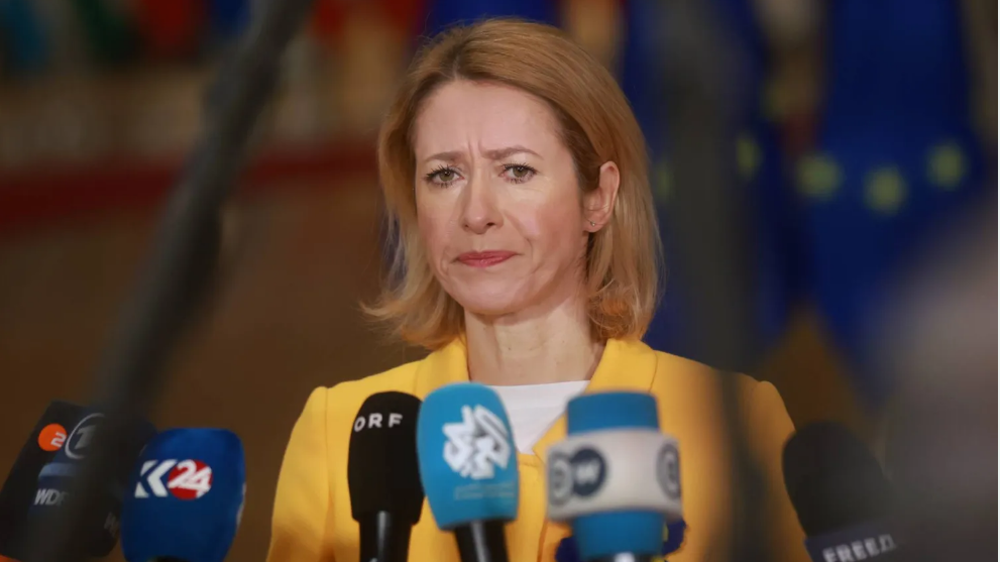
EU imposes new sanctions on Russia on third anniversary of Ukraine war
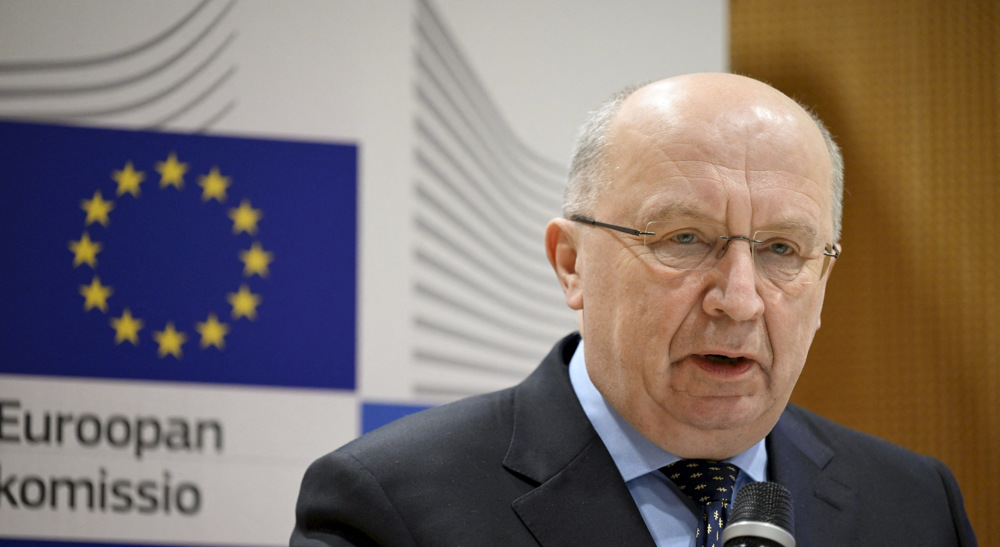
EU weighting new aid package to Ukraine ‘to show support’ amid rift with US
Iranian flotilla makes port call in India with 'friendship message'
How UK counter-terror police colluded with Zionists to detain me after Beirut trip
Biden, Blinken, Austin referred to ICC over Gaza war crimes
EU will 'do the same' if US implements tariff hikes: France
VIDEO | Press TV's news headlines
British celebrities condemn BBC removal of Gaza documentary
Iran Army acquires tactical vehicles, audio surveillance systems
VIDEO | UK police detain anti-Zionist scholar upon return from Lebanon


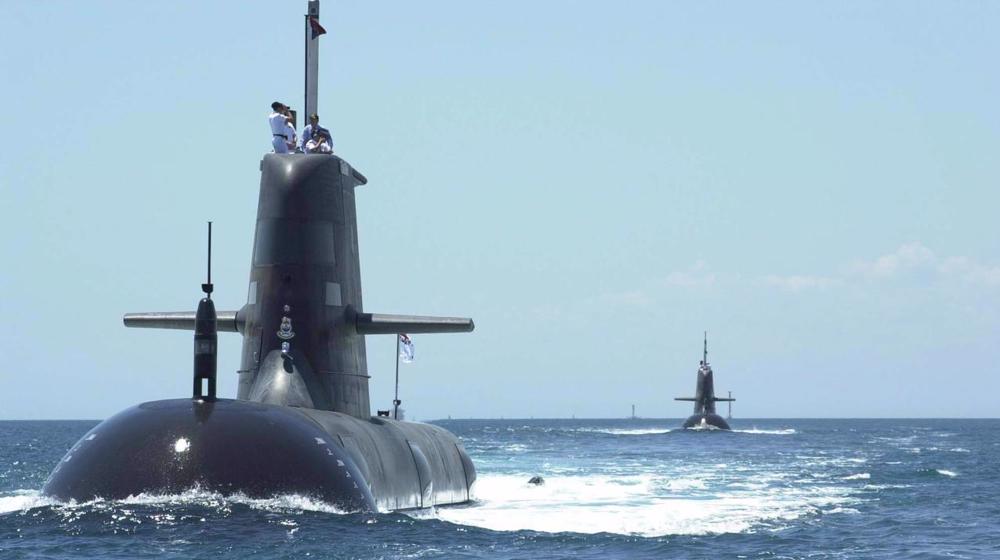
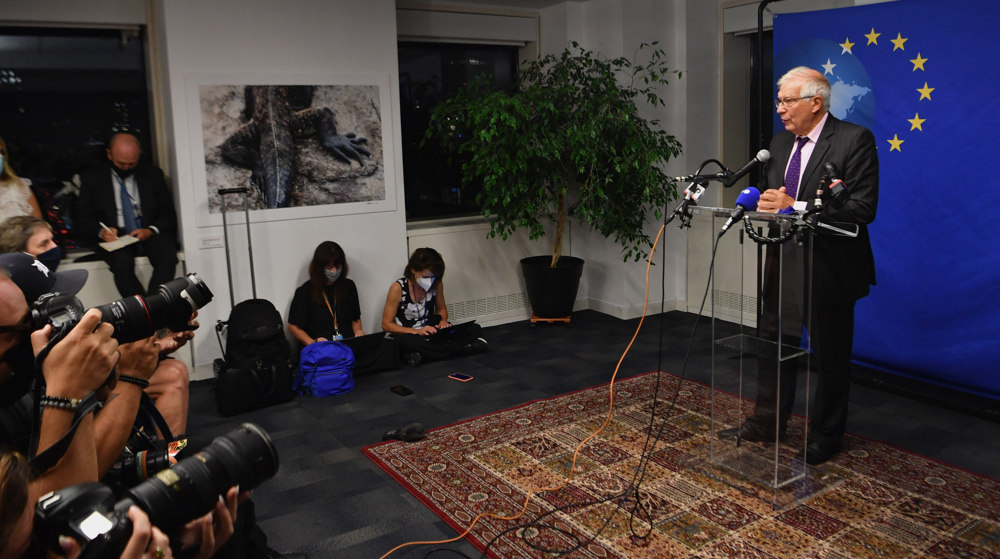
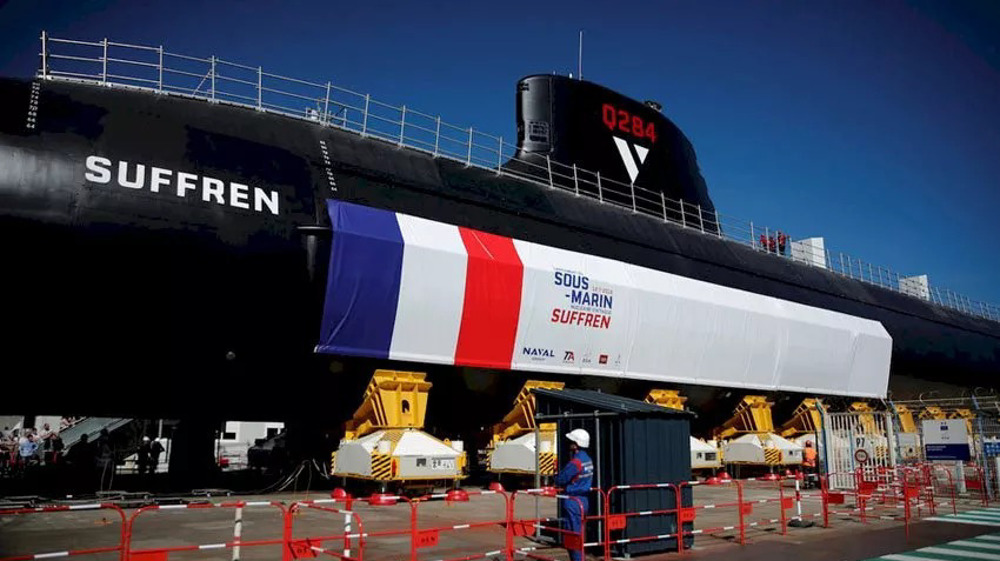




 This makes it easy to access the Press TV website
This makes it easy to access the Press TV website